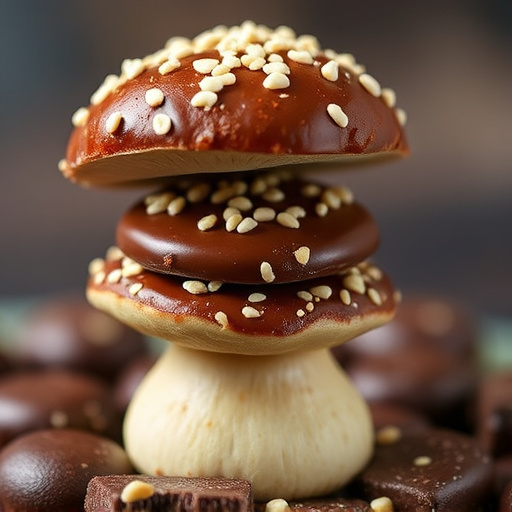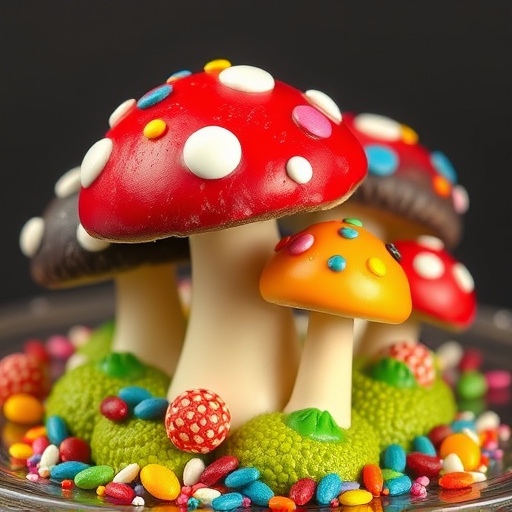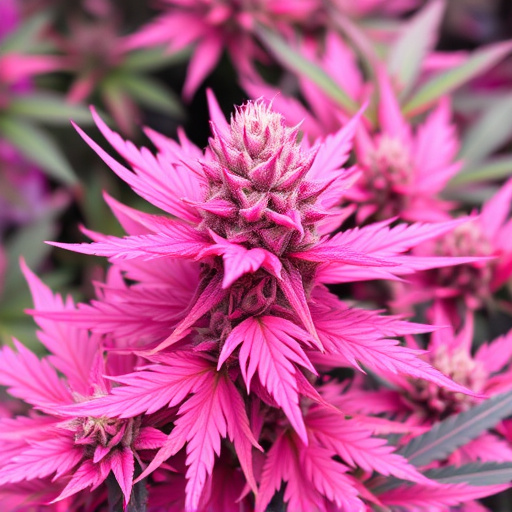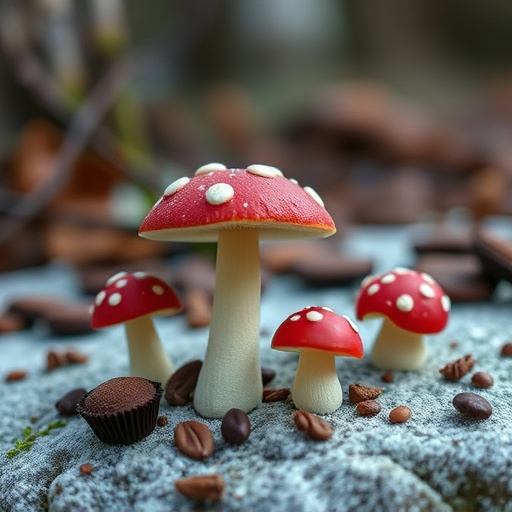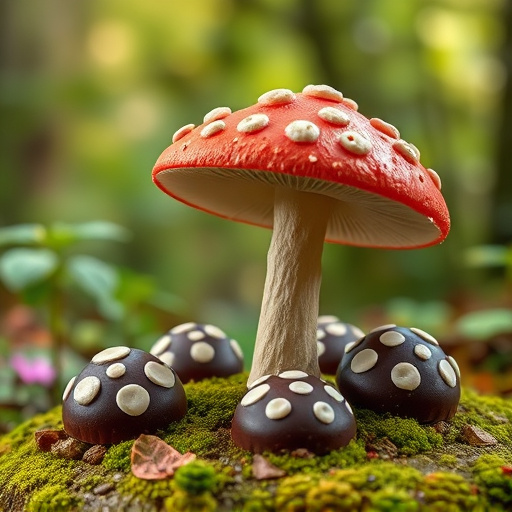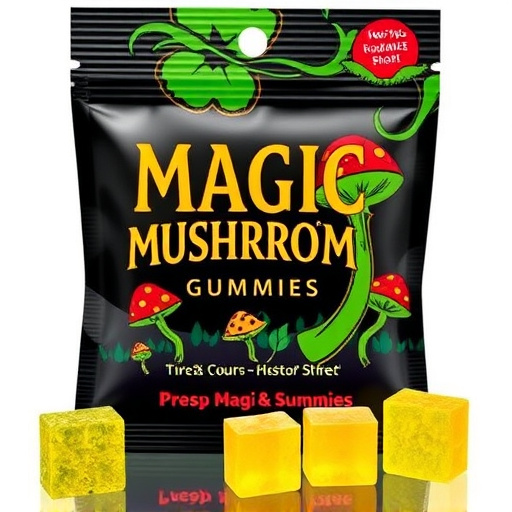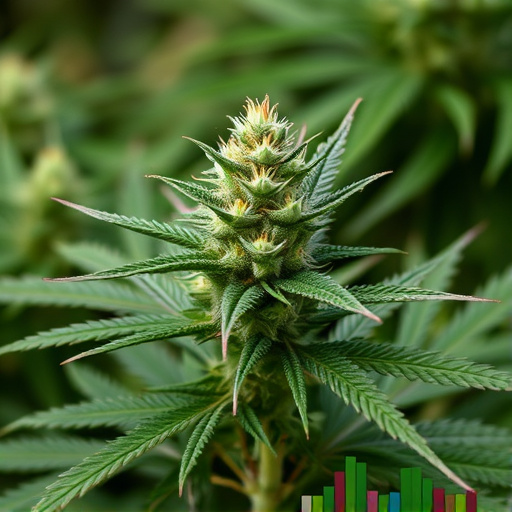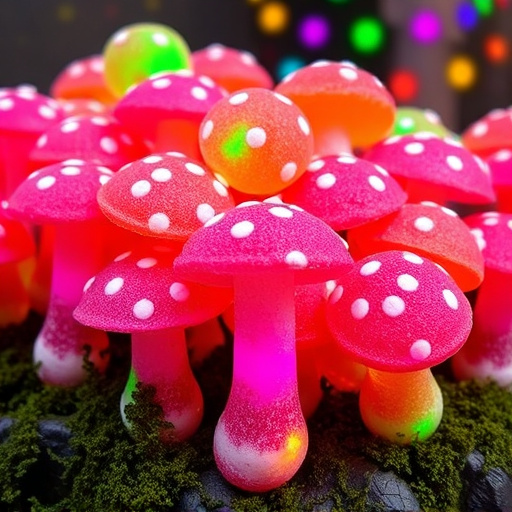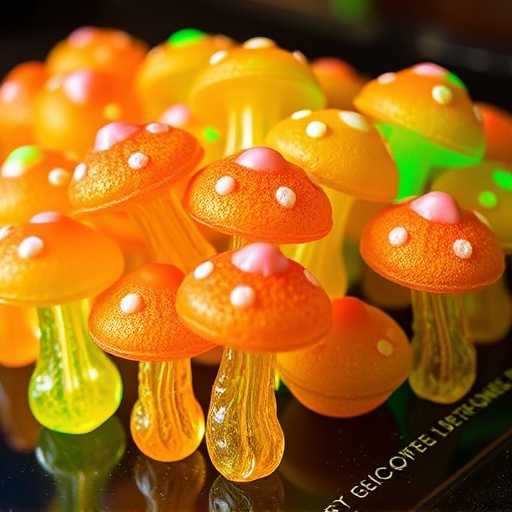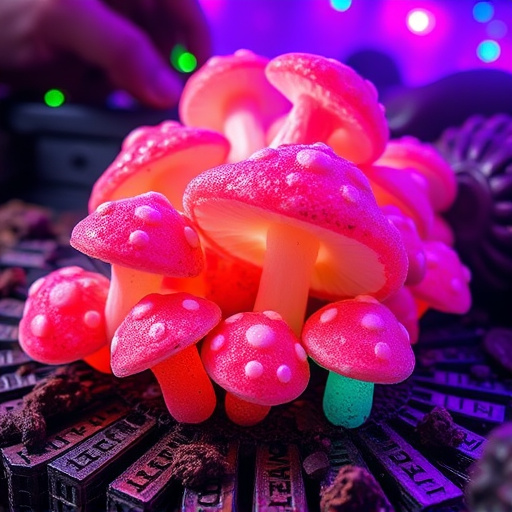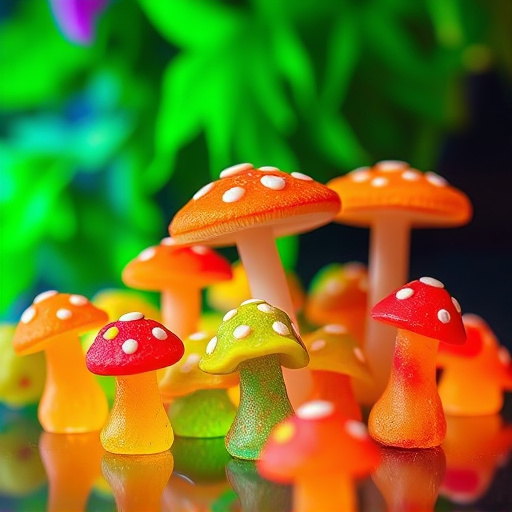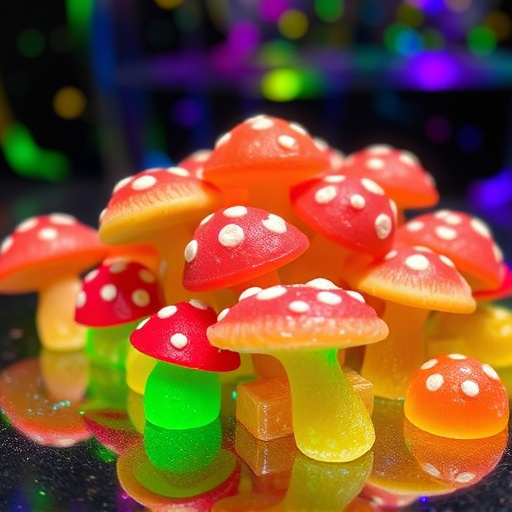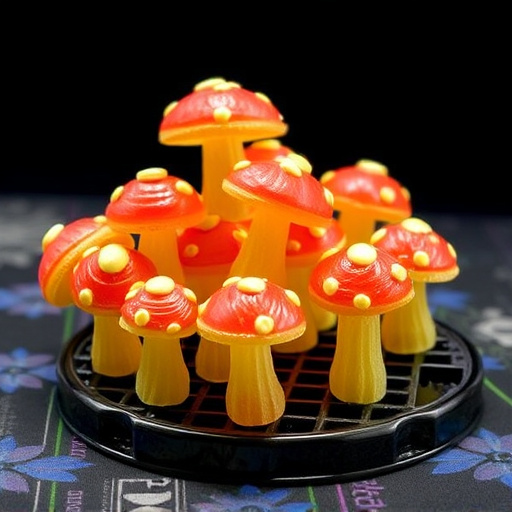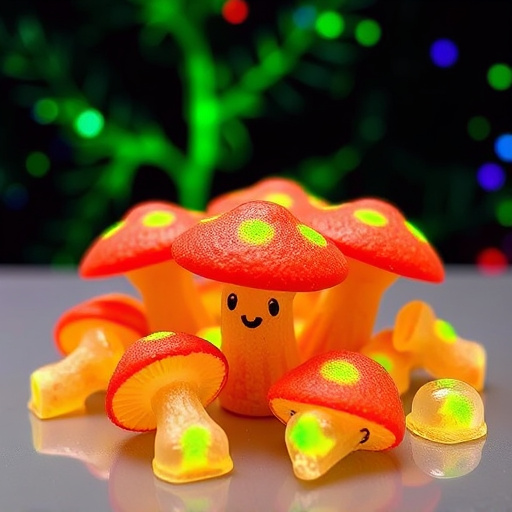Magic Mushroom gummies, rich in psilocybin, are gaining attention for their potential therapeutic benefits on mental health. Research shows that psilocybin enhances neural connectivity, improving communication between brain regions and fostering creativity. This altered state may aid in treating depression, anxiety, and PTSD by encouraging new perspectives. The effects are attributed to psilocybin's interaction with serotonin receptors, leading to changes in consciousness and heightened sensory perception. Understanding the relationship between neural connectivity and magic mushroom gummies' impact is crucial for unlocking their therapeutic potential while being aware of possible negative effects and individual tolerances.
“Uncover the intriguing world of Magic Mushroom Gummies—a modern twist on traditional psychedelics. This article delves into their effects on the brain, specifically exploring neural connectivity and its role in shaping psychotic experiences. With a surge in popularity, consumer reviews highlight both benefits and drawbacks. From profound insights to potential risks, we analyze real-life stories, offering a comprehensive guide for those curious about Magic Mushroom Gummies and their impact on neural connectivity.”
- Magic Mushroom Gummies: Unraveling Their Effect on the Brain
- Neural Connectivity and Its Role in Psychotic Experiences
- Consumer Reviews: Pros, Cons, and Real-Life Experiences
Magic Mushroom Gummies: Unraveling Their Effect on the Brain
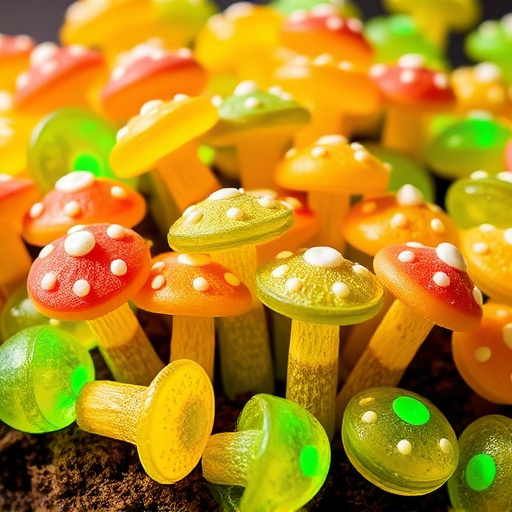
Magic Mushroom gummies, infused with psilocybin, have gained attention for their potential therapeutic effects on mental health and brain function. Beyond their recreational use, researchers are exploring how these mushrooms can impact neural connectivity. Studies suggest that psilocybin may enhance communication between different regions of the brain, promoting a sense of unity and heightened creativity. This altered state could be beneficial in treating conditions like depression, anxiety, and PTSD by facilitating new perspectives and emotional processing.
The effects of Magic Mushroom gummies on neural networks are believed to stem from their interaction with serotonin receptors in the brain. Psilocybin stimulates these receptors, leading to changes in consciousness and heightened sensory perception. While more research is needed, early findings indicate that this natural compound could offer a novel approach to improving mental well-being by strengthening neural pathways associated with empathy, self-awareness, and cognitive flexibility.
Neural Connectivity and Its Role in Psychotic Experiences
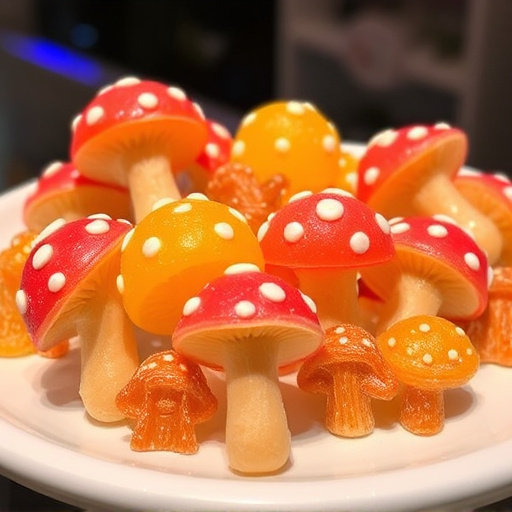
Neural connectivity, or how different areas of the brain communicate with each other, plays a pivotal role in shaping psychotic experiences, which are often associated with magic mushroom gummies consumption. Research suggests that altered neural connections can lead to the distorted perceptions and heightened sensory experiences commonly reported by users. Magic mushroom gummies, known for their psilocybin content, have been shown to temporarily disrupt normal brain function, allowing for new neural pathways to form and leading to profound changes in consciousness.
Understanding this connection is crucial when considering the potential therapeutic benefits of magic mushroom gummies. By manipulating neural connectivity, these compounds may offer insights into mental health conditions like depression, anxiety, and PTSD. The ability to access altered states of consciousness safely and controlled environments could provide a unique perspective on how our brains process information, ultimately offering innovative approaches to treatment and personal exploration.
Consumer Reviews: Pros, Cons, and Real-Life Experiences

Consumer experiences with Magic Mushroom Gummies vary widely, like a kaleidoscope of thoughts and feelings they can induce. Many users rave about their ability to enhance creativity, spark profound insights, and foster a sense of connection—both internally and with others. They often describe feeling more open, empathetic, and at peace, with a heightened appreciation for art, music, and nature. Some even report that these gummies have helped them overcome social anxiety, improve mental clarity, and find solutions to long-standing problems.
However, not every experience is positive. Disappointing outcomes include feelings of disorientation, paranoia, or intense anxiety in some individuals. Users may also report difficulty concentrating or focusing after consumption. Some point out that the effects can be unpredictable, with varying intensities and durations depending on factors like dosage, setting, and personal tolerance. Furthermore, concerns about quality control and purity linger, as unregulated markets can lead to inconsistent or potentially dangerous products. Nonetheless, many advocates emphasize the potential therapeutic benefits of magic mushroom gummies, particularly in facilitating deeper introspection and enhancing neural connectivity.
In conclusion, while Magic Mushroom Gummies offer an intriguing glimpse into potential therapeutic applications, particularly regarding neural connectivity, consumer reviews highlight a complex picture. The benefits reported by users range from enhanced creativity to positive mental shifts, suggesting these gummies may provide unique experiences. However, concerns about their effects on psychotic tendencies and varying individual responses underscore the need for further research. Understanding the intricate relationship between Magic Mushroom Gummies and neural connectivity is crucial to navigating this emerging trend safely and effectively.
